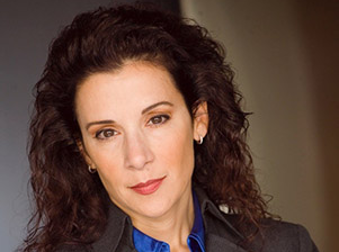SMPTE 2017: Monitoring Gender Bias With Machine Learning
LOS ANGELES—At Monday's Women in Technology Luncheon at the SMPTE 2017 Technical Conference & Exhibition, the discussion was focused on innovative, actionable solutions to recognize and address gender bias. Presented by SMPTE and HPA Women in Post, the event introduced the audience to some of the tools developed by the Geena Davis Institute on Gender in Media, an organization that studies how media portrays women and girls and how negative gender stereotypes influence cultural and social behaviors and beliefs.

Madeline Di Nonno, CEO, Geena Davis Institute on Gender in Media The Institute's CEO Madeline Di Nonno detailed to the audience—and interviewer Kari Grubin, co-chair of HPA Women in Post—the development of the Geena Davis Inclusion Quotient (GD-IQ), a software tool that analyzes audio and video media content.
Funded by Google.org and incorporating Google's machine learning technology, and the University of Southern California's audiovisual processing technologies, GD-IQ is designed to more accurately measure gender representation on screen.
Di Nonno described GD-IQ simply as "a spell-check for gender bias." The tool has learned to detect different characters on screen, determine their gender and calculate how often and for how long they spoke in relation to one another.
The software was used to analyze the 100 highest grossing (domestic) live-action films from the years 2014, 2015 and 2016, and the results may not be surprising, or encouraging: Women were underrepresented in all ratings categories included in the 100 highest grossing films of the past three years; men are seen and heard nearly twice as often as women; women were barely seen in Academy Award-winning films. (The full methodology can be found here.)
Di Nonno couldn’t stress enough the impact this makes in terms of gender bias. "Those media images are baked in [to the audience's consciousness]... What we see onscreen greatly influences our views on society."
As an example, Di Nonno recalls how Davis, herself an Olympic-level archer, observed a significant increase in interest in archery among girls and women. When the Institute surveyed USA Archery members, it found that 70 percent of the girls interviewed responded that Katnisss Everdeen from “The Hunger Games” and Princess Merida from “Brave” (both female film leads, both archers) influenced their decision to take up archery. “The Hunger Games” and “Brave” were released in 2012, and participation in archery rose 86 percent from 2013 to 2014, with women's participation increasing 105 percent during that period of time. The full results of that research can be found here.

Jennifer Lawrence ("Katniss Everdeen") stars in Lionsgate's “Hunger Games” film series. In a study of archers, the Geena Davis Institute on Gender in Media found that 48.5% of female respondents under 18 say Katniss Everdeen had "a lot" or "some" influence on their decision to take up archery. Di Nonno also pointed out some encouraging financial statistics that the Institute cites when collaborating with studio and networks: "Female-led films do better at the box office, earning 16 percent more than male-led films. So if you can make more money with female-led films…"
Noting that because GD-IQ is "built off an API, it can be customized for all kinds of research," she explained that the Institute ultimately plans to release GD-IQ as a product to third-party developers, with a text-based tool soon to be introduced.
Di Nonno said she considers GD-IQ something of "a magic bullet for systemic change."
Get the TV Tech Newsletter
The professional video industry's #1 source for news, trends and product and tech information. Sign up below.
